26 de janeiro de 2026
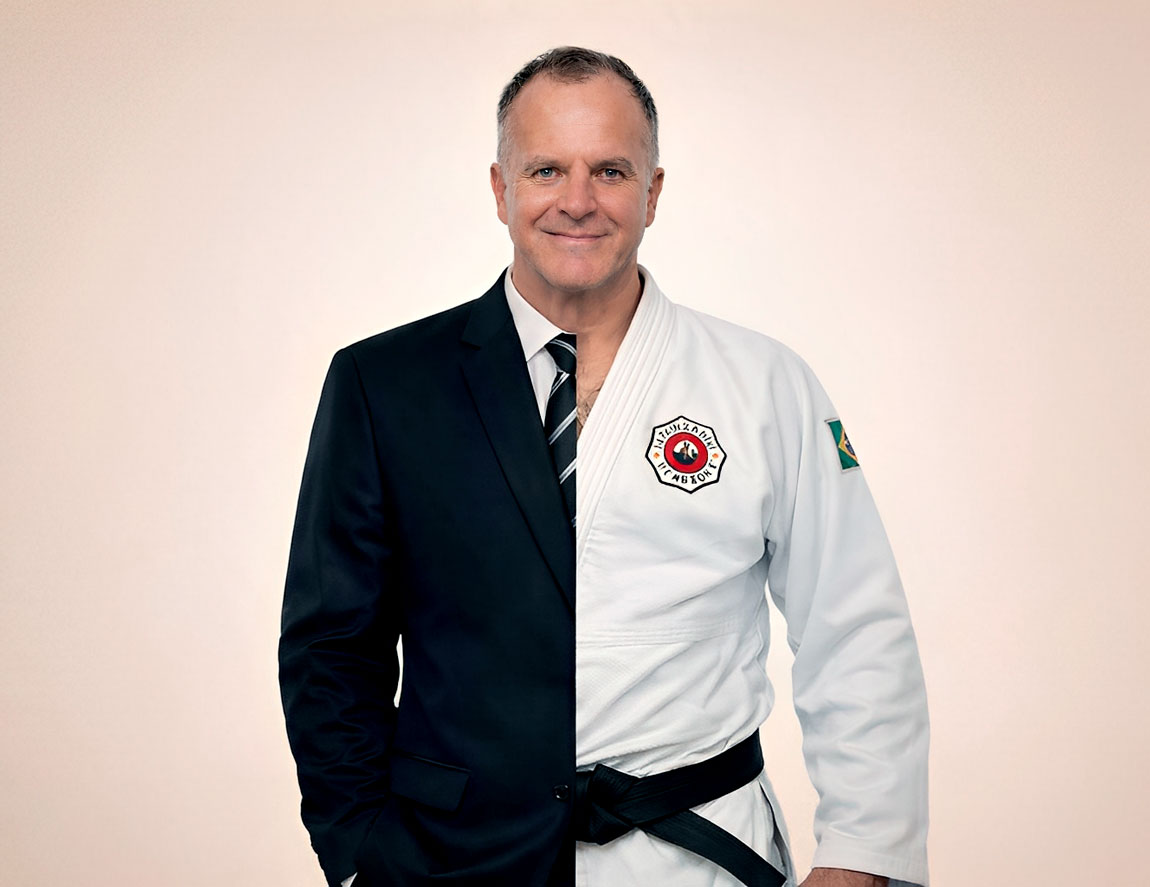
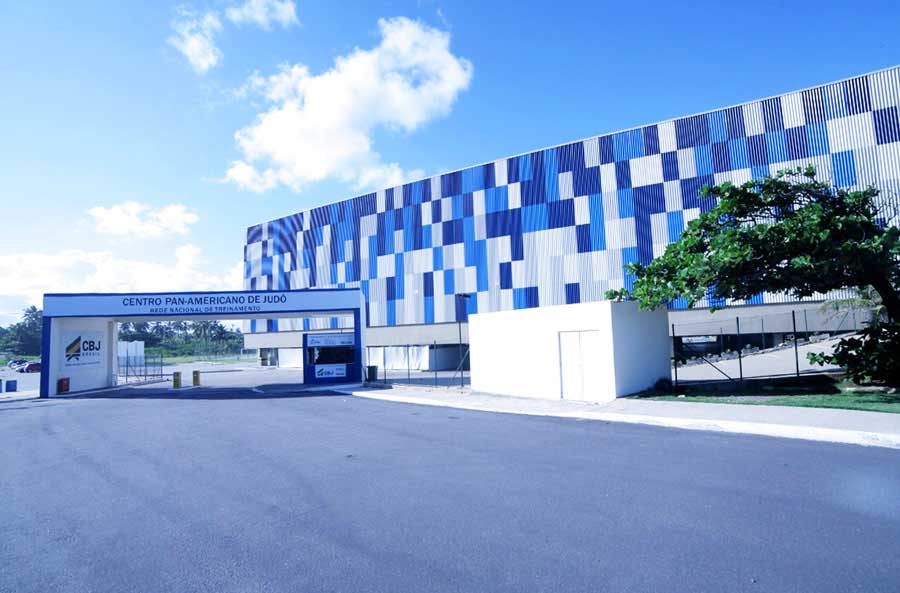 Main Entrance of the Pan American Judo Center
Main Entrance of the Pan American Judo Center
Incompetence, immobility and lack of vision of the leaders who now head the CBJ resulted in the loss of the great legacy of the Rio 2016 Games to judo. Thus, the sport is without its training center and headquarters of its main events and wastes millions of dollars invested in construction and improvements, accumulating unprecedented loss
Sports Management
October 25, 2019
By PAULO PINTO I Photos BUDÔPRESS
Curitiba – PR
Inaugurated on july 28, 2014, the Pan American Judo Center (CPJ) was until december 2018 the largest judo training facility in the Americas and one of the largest in the world. Located on Ipitanga beach, in the municipality of Lauro de Freitas, Bahia, CPJ was the first installation to be completed with the Brasil Medals plan, an initiative aimed at preparing the country for the Rio 2016 Games.
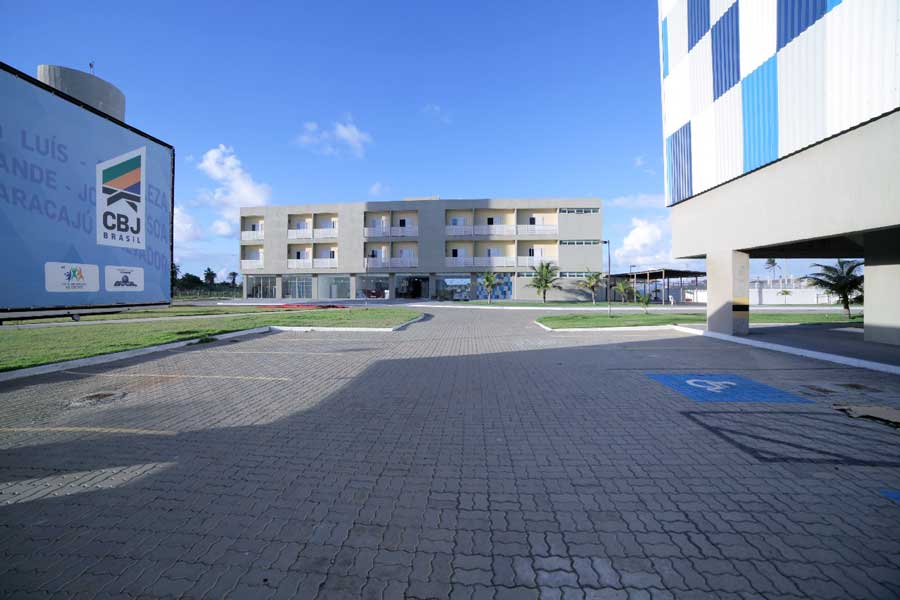
Frontal view of the former lodge that housed 32 suites, kitchen and dining room, now owned by Sudesb
As a result of the partnership between the Brazilian Judo Confederation (CBJ), the Ministry of Sport and Bahia government, in the two first years, the center served exclusively for the preparation and technical improvement of the Brazilian judo team for the Olympic Games of 2016.
Besides being the main training center of the sport, until december 2018 CPJ hosted assemblies, meetings, Brazilian championships, national grand prix, selective and international challenges promoted by CBJ in partnership with Bank of Bradesco and other supporters of national judo.
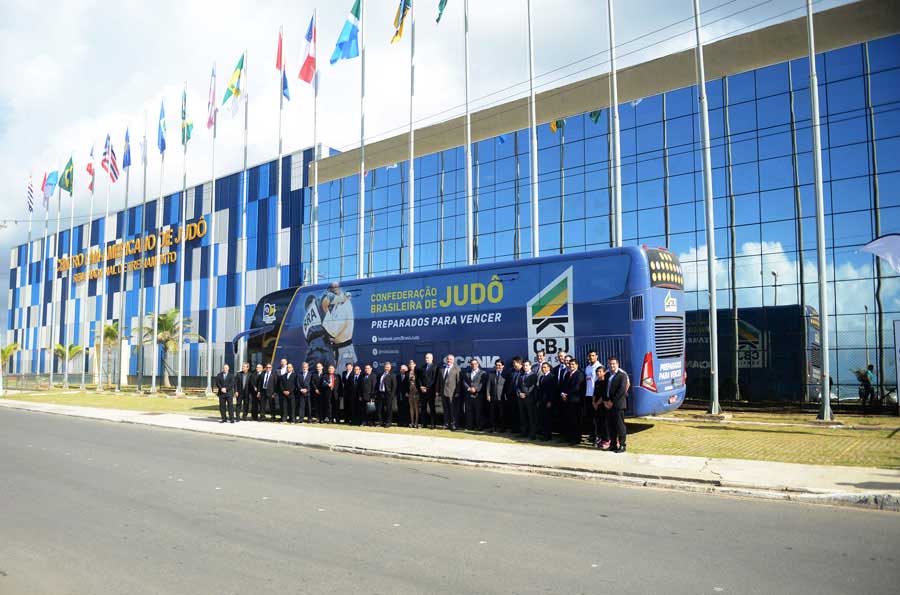
State leaders before CPJ and the Brazilian Confederation bus, which also no longer belongs to the entity. Paradoxically, at an assembly held on November 21, 2018, with the exception of the president of the Tocantins Federation, these same presidents endorsed the absurd decision to scrap the Brazilian judo complex imposed by Sílvio Acácio.
The enviable sports complex is no longer run by the sport due to the lack of vision of the vain CBJ area coordinators, who prefer to dump half a million reais in the garbage each year, to rent the building headquarters in the neighborhood of Botafogo, Rio de Janeiro, and they decided to give up the projected management space Paulo Wanderley Teixeira to be the home of Brazilian and Pan American judo.
Nicknamed “beach house” and “white elephant” by the current president of the CBJ, from now on the CPJ will be managed by some state government of Bahia. It will soon be renamed and should receive events from churches, businesses, municipalities and different sports.
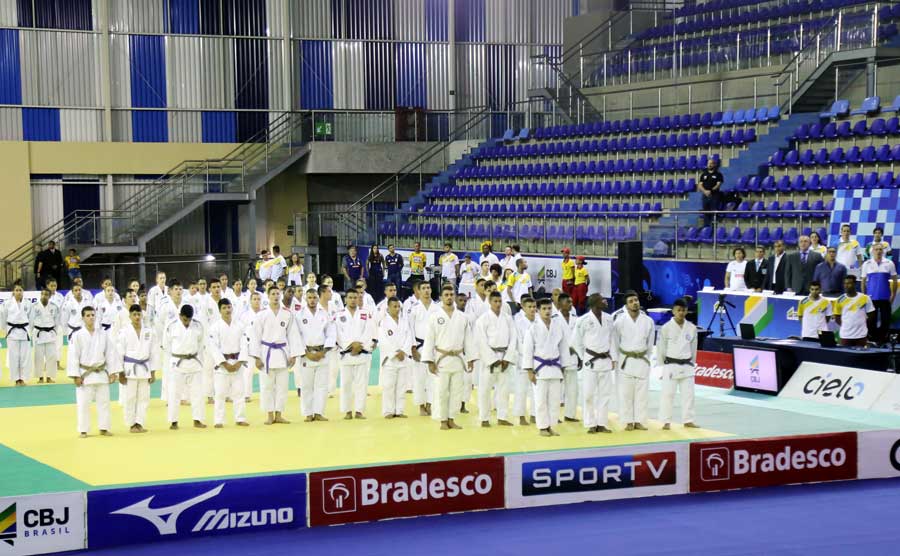
Until the arrival of Sílvio Acácio as head of the confederation, Brazilian championships were held at the judo house; This year CBJ was only able to set a headquarters to hold the Senior Brazilian Championship on October 11, so much difficulty that the organization faces today to make the events of its calendar.
The sumptuous sports complex was so large and imposing that only the building that once housed the athletes’ accommodation and technical commissions, besides the refectory, is today the headquarters of the Bahia State Superintendent of Sports (Sudesb), which proposes to have its headquarters on its website. own.
The central building, which once housed the administration, meeting rooms, the presidency room, the convention center and the auditorium equipped with the most modern audiovisual resources, should be occupied by the Secretariat of Social Development or another Bahian municipality. Since early 2019 the Brazilian Judo Confederation has occupied only two small rooms under the center bleachers.
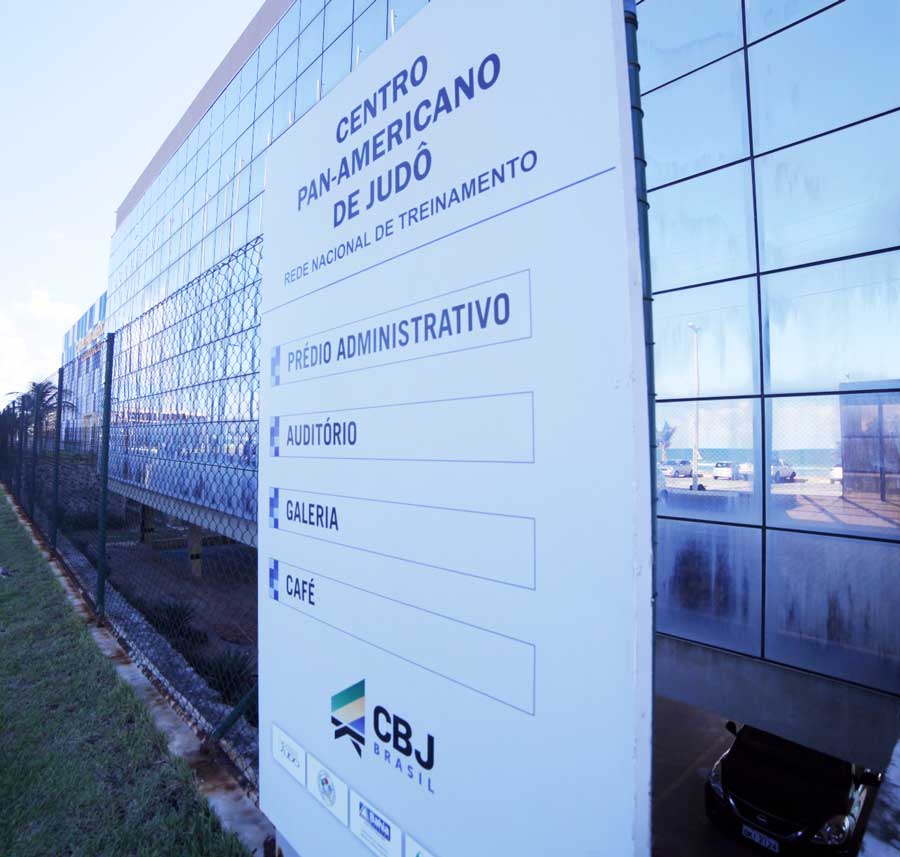
Plaque that once stood in front of the complex had the logos of the federal and Bahia governments, the CBJ, the International Judo Federation and the Pan American Confederation, meaning CPJ was a World Judo heritage site.
Sílvio Acácio Borges tries to minimize the impact of losses and millionaire losses, claiming that the entity will still manage the sports arena, but this is not true. The Bahian government’s press office informed us that the gym is already run by the state. CBJ’s only prerogative will be to use the arena on three or four dates a year, previously scheduled with the Bahian government, and nothing else.
Paulo Wanderley, Marcelo França and executive Mauricio Carlos dos Santos will be remembered as the visionary leaders responsible for building the largest and most complete Judo training center in the world. While Sílvio Acácio, Robnelson Pereira, Renato Araújo, Ney Wilson and Matheus Theotônio will be remembered for failing in management and losing the Pan American Center of Judo, CBJ’s greatest heritage in its 50-year history.
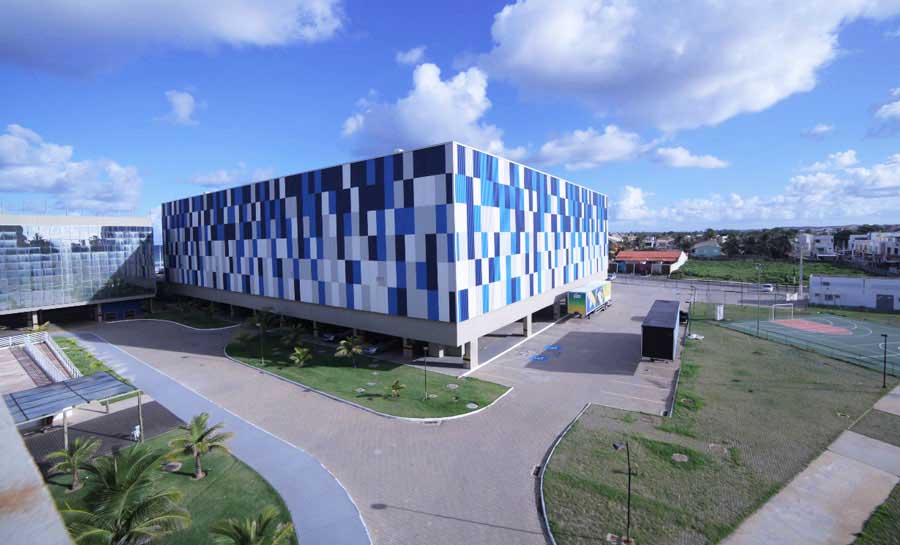
Built on the grounds of the former Ayrton Senna Karting track, the center occupies an area of 20,000 square meters and comprises three buildings: air-conditioned gym, athlete’s accommodation and administrative sector
But under the command of Sílvio Acácio Borges, the once-giant Brazilian Judo Confederation, in addition to losing the Pan American Judo Center, ended the smashed 2018 season with only two sponsors (Cielo and Bank of Bradesco), as today Mizuno only provides material for the senior Brazilian team. Judo is also out of Globo Esporte’s permanent Sunday programming. Now we see the judo in the main TV station in the country in occasional events or in the reality of judo that Bank of Bradesco and Globo Television are showing in their second season, produced precisely to give visibility to the banking institution that is the largest partner and supporter of national judo.
Centralizing and segregating, with his immobility the national leader imposed on CBJ the same model of repressive administration that prevented his reelection in the state of Santa Catarina`s Judo Federation. In less than two years the president of CBJ completely blocked the entity, disunited sectors that previously focused on the same goals, and today the confederation is no longer a model of sports management in Brazil.
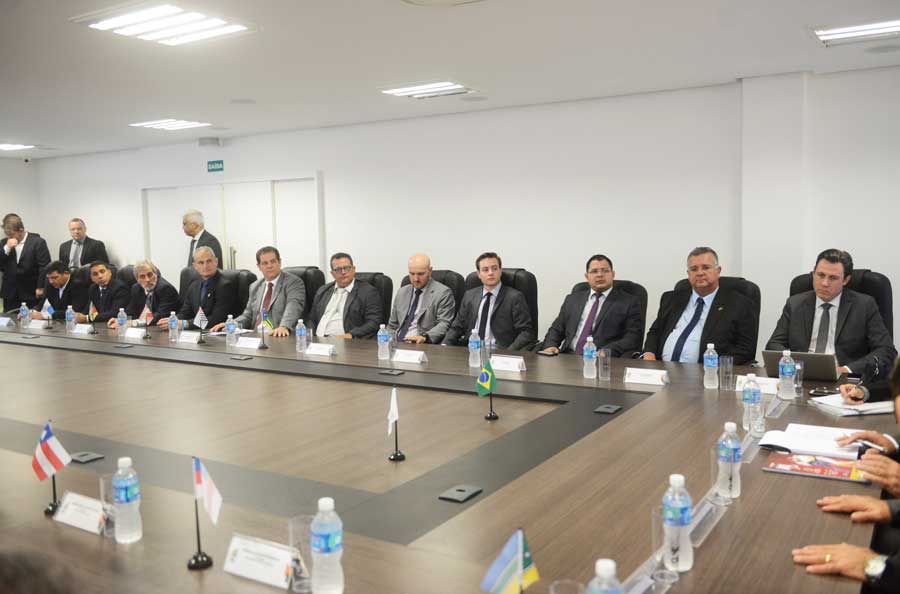
The result of much discussion and denunciation in the past, the CPJ meeting room table comfortably held 27 state presidents, three members of the fiscal council, three vice presidents, and the president, plus a half dozen guests.
It is very important to remember that the resources for the construction of CPJ came from the Federal Government (19.8 million reais), the state government through the Secretariat of Labor, Employment, Income and Esporte (18.3 million reais) and CBJ, which spend 5.1 million reais on the executive project, equipment and furniture, totaling 43.2 million reais. Sports equipment was the subject of a Terms of Use for the Brazilian Judo Confederation (CBJ) signed by Sports Minister Aldo Rebelo and Governor Jaques Wagner from Bahia State.
In practice, the charitable president Silvio Acácio Borges donated a sports complex of 50 million reais, which belonged to Brazilian judo, to the government of Bahia. Even after a year of this abrupt and absurd decision, leaders of other sports seek to understand the reason for such charity. What actually happened in this operation?
By March 31, 2021, many things must happen and, due to the loss of space in the national sports scene, hardly Bank of Bradesco and Cielo credit card operator, who today invest about 13 million reais on display, will renew the contracts that keep the Brazilian judo standing.
Paulo Wanderley knew who was your successor
Regrettably, the worst is yet to come, and we cannot dispense the person that is responsible for this tragedy: the laureate professor Paulo Wanderley Teixeira, former president of CBJ, who handed over the command of a giant and complex institution to a leader who had already failed in administration of a small entity and was being deposed by its affiliates after a single term.
The current president of the Brazilian Olympic Committee was aware of everything going on in Santa Catarina. He knew details of the problems that resulted in the disapproval of a vengeful leader who, during his four years in office, neglected management and promoted the great setback that plagued Santa Catarina’s judo. In addition, he harassed and relentlessly repressed teachers and judokas. Those who dared to disagree were marked as the enemy.
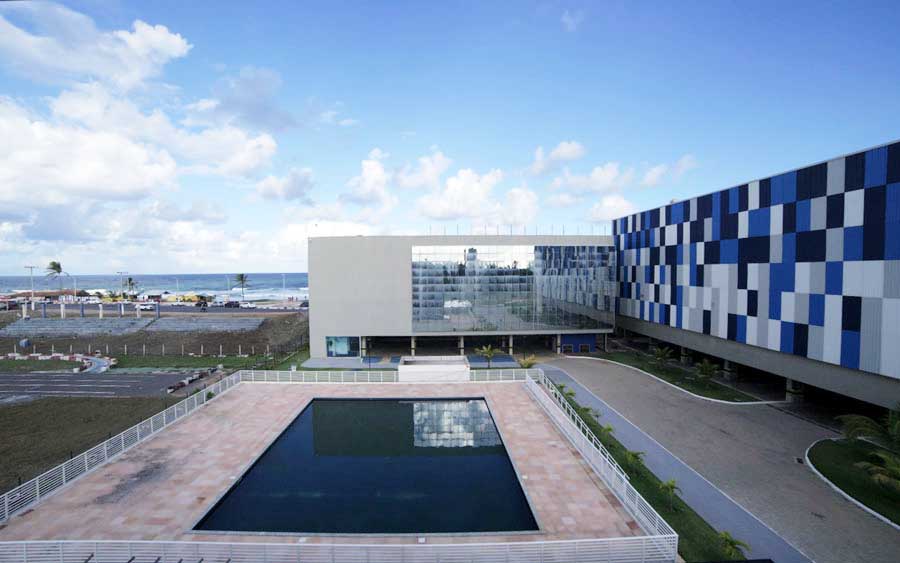
CPJ housed athlete fitness and recovery areas, professional training center, 200-person auditorium, VIP room, training center, 32-room accommodation that hosted over 70 athletes at the same time, games, swimming pool, sports court and 100-meter running track with four lanes to warm up athletes. Its capacity is for two thousand seated people and another 2500 standing. Outside, the parking lot has 500 spaces.
Paradoxically, the great manager who elevated Brazilian judo to the top of the world irresponsibly handed over the sport to one of the worst judo leaders in Brazil at the time. Meritocracy, consistency and zero accountability.
Those who advocate sports policy know that sticking to agreements and acting on meritocracy and professional appreciation is not the COB president’s best quality, and sadly the choice of his successor has paid off.
If the complex management of the Brazilian Olympic Committee were not enough, today Paulo Wanderley loses sleep also with the management of the entity that projected him to the highest hierarchical position of the national sport. Worse, in addition to having to worry about his reelection at the COB, he has to manage and ingest the succession process of the Brazilian Judo Confederation that already attracts three big names today. Not to mention the CBJ’s current high-yield manager, who, backed by the top-level CBJ summit and three or four state leaders, runs out and is more than ever in the running.
However, of the four names running the race, Ney Wilson is the only one who would not have the support of Paulo Wanderley, due to several historical factors and facts.
The human judokas who truly work for the sport are left with the option of praying earnestly that this time the enlightened head of Brazilian sport will use discernment, seriousness, and commitment, anointing someone who can truly lift the judo from the rubble to which it was thrown.